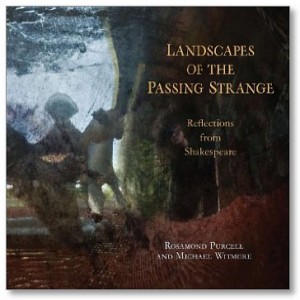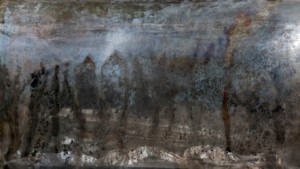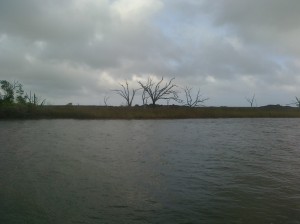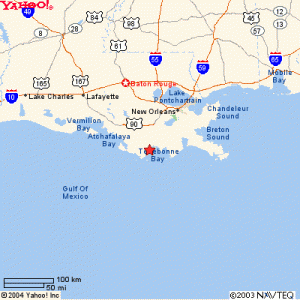I knew it was going to be a good day when I found street parking right across from Penn Station on 31st St. It wasn’t legal — there can’t possibly be any legal parking around there — but it was just the right size, nestled in between an unmarked TSA van and a traffic control Prius. A good, free, safe place to leave the car for 45 minutes before I picked up my first visitor, Rosamond Purcell.
 The weekend before, I’d stopped through Rosamond’s studio in Somerville, MA, where we’d packed up framed prints of nine gorgeous images to hang in the Institute for Writing Studies at St. John’s. On Friday, Rosamond and her collaborator Michael Witmore were coming to campus to talk about how a visual artist and a Shakespeare scholar work together, and produce such strangely beautiful things.
The weekend before, I’d stopped through Rosamond’s studio in Somerville, MA, where we’d packed up framed prints of nine gorgeous images to hang in the Institute for Writing Studies at St. John’s. On Friday, Rosamond and her collaborator Michael Witmore were coming to campus to talk about how a visual artist and a Shakespeare scholar work together, and produce such strangely beautiful things.
We picked up Mike, who’s recently become the Director of the Folger Shakespeare Library, on the Upper East Side. By coincidence, we were near a store named “Tender Buttons,” which shares that name with the poetry press co-founded by my St. John’s colleague Lee Ann Brown. Both derive from the same Gertrude Stein book of poetry. Another good sign.
Another good sign.
We had about 30 – 40 people at the talk, not bad for a Friday afternoon. We got a real treat in terms of hearing about the shared commitment to this unusual collaboration. Rosamond took the pictures in a meadow in northern New Hampshire in the summertime, bouncing light off old, slightly dented, irregularly-colored antique double-mirrored bottles once used to store light-sensitive dyes. “Light tight,” she said was how they were described. Mike then looked at the images until a line or moment from Shakespeare came into his mind. He said it usually took about 10 seconds to get a fix on it — and when it didn’t come to him, he moved on to the next picture.
What we were really talking about, as I’d hoped when I first imagined this course, was the interface between the visual and the textual in Shakespeare, and in our imaginations more generally. It’s not always possible to put into words what these images show, though we all see things there, sometimes even the same things. As one of my students said — and their questions to our distinguished guests made their professor proud — the images-with-text were themselves like performances, dramatic responses to the play.  Unlike a stage performance or a film that unfurls in time, these images juxtapose poetic form and visual intensity in a simultaneous frozen instant.
Unlike a stage performance or a film that unfurls in time, these images juxtapose poetic form and visual intensity in a simultaneous frozen instant.
Or, as Shakespeare says, these images are
Like perspectives, which rightly gazed upon / Show nothing but confusion, eyed awry / Distinguish form (Richard II, 2.2)
The evening continued with some great post-talk chat and questions from undergraduate and grad students, and then a tasty dinner in Astoria at the Kebab Cafe on Steinway St., a favorite haunt of several St. John’s professors and Queens foodies. When I was scooping out the cheeks of the roasted whole fish we shared for dinner — Long Island Sound porgy, a little bigger than the ones my son catches off the dock down the street from my house — I thought about how good it is to share strange things.
O, the most piteous cry of the poor souls! Sometimes to see ’em, and not to see ’em; now the ship boring the moon with her mainmast, and anon swallowed with yeast and froth, as you’d thrust a cork into a hogshead.
(The Winter’s Tale, 3.3)


